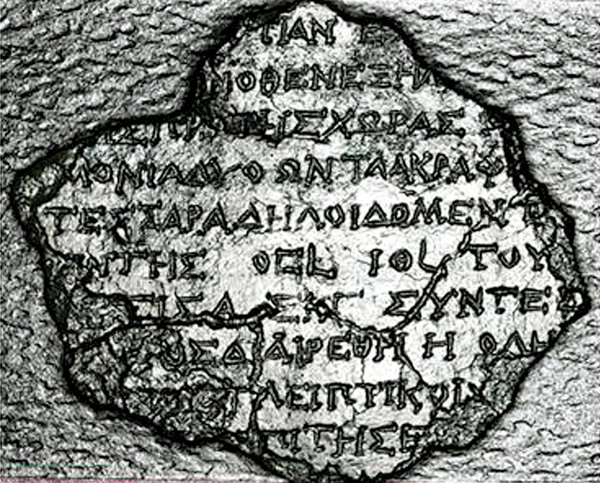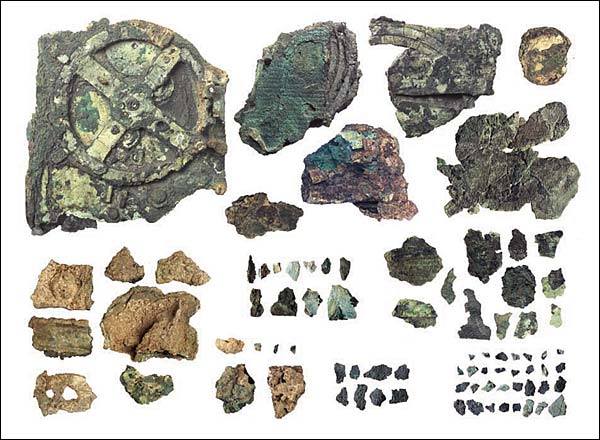Newly discovered clues are beginning to unravel the mysteries of the ancient astronomical calculator known as the Antikythera Mechanism that could rpedict solar eclipses. The mechanism was found in a shipwreck near Crete and has drawn interest since it was first excavated in 1901 that escalated after British scientist Derek Price began a comprehensive study into it. His investigations led to the belief that it appears to have been a device for calculating the motion of the stars.
The New York Times states that an inscription in the calculator referencing the Olympic Games could indicate that the device may have been created on the isle of Rhodes, ruling out that this may be the work of Archimedes as orginally thought.
The new analysis of the dial set on the back of the mechanism by science historian from the University of Quilmes in Argentina, Christian C. Carman, and physicist from the University of Puget Sound in Washington, James Evans, has yielded new evidence. They believe that the calendar of the device began in 205 B.C. – seven years after Archimedes died.
In the Seventies, engravings were believed to have dated from 87 B.C. but recent scientists examining the forms of the letters on the inscriptions of the device believe that they are from 150-100 B.C.
The two scientists writing in November’s issue of the journal History of Exact Sciences believe that the Antikythera mechanism is actually 50 years older than originally thought.
An inscription on a small dial used to date the Olympic Games refers to an athletic competition that took place on the island of Rhodes. Dr. Evans says he remains cautious about attempting to identify the creator of the mechanism.
Ask me anything
Explore related questions








